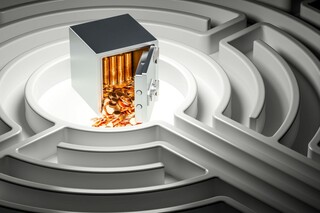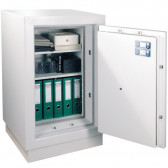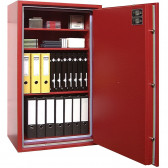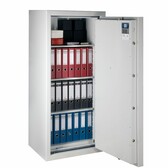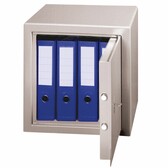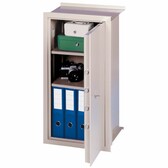Storing money is a fundamental function of any safe. When choosing a safe for your money and valuables, you need to answer some, not easy at all, questions. In the following text, we will help you to dispel at least some of your doubts.
Which security class should I choose?
Legal basis
Safes have security classes based on the European standards EN 14450 and EN 1143-1. As today we are discussing safes typically used for storing cash, we will focus on the latter, as the EN 14450 standard refers to safes with the lowest and weakest parameters, in which it is better not to keep cash.
There is a regulation from the Minister of the Interior on the limits for securing cash in safes according to security grade. This is a moving amount depending on the national average, but it will give you a hint as to which class of product you need:
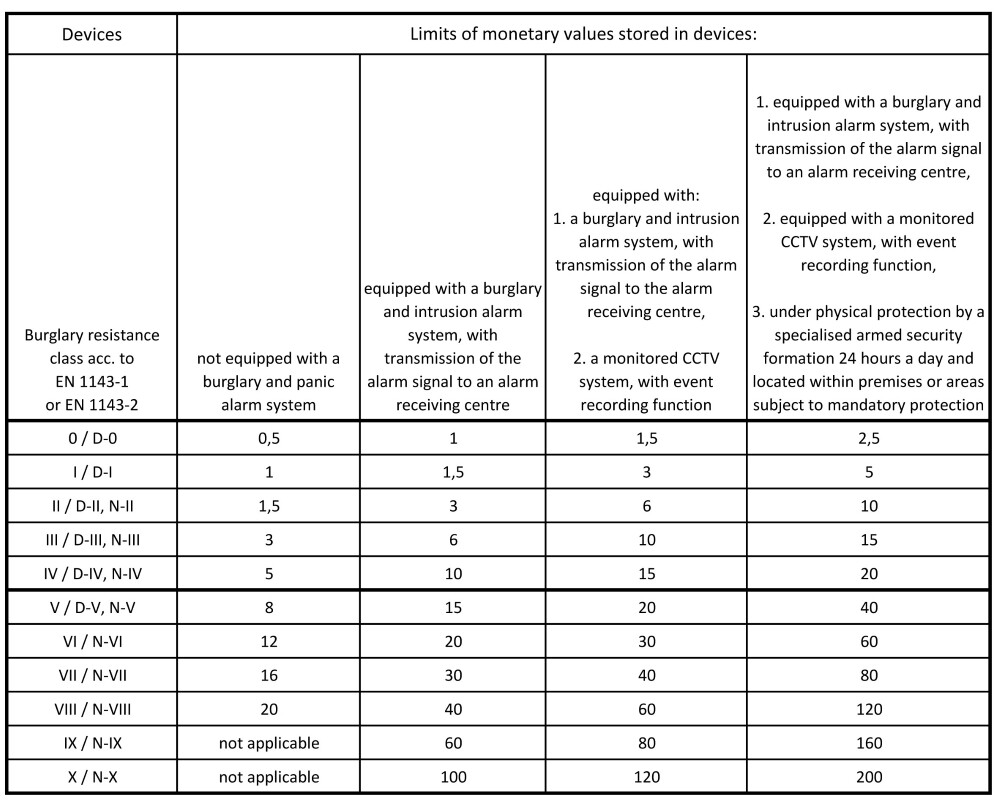
Logically, the more cash or valuables you want to keep in the safe, the higher the resistance class of the home safe you should choose.
Available classes
There are quite a few resistance classes in total but classes 0 to V are suitable for relatively normal use. Above this, safes and vaults begin, the use of which I do not recommend in a domestic environment. Nevertheless, you are sure to find something suitable from among the available models. In addition, you will also find fire-resistant safes in classes I-II that have fire resistance classes of 60 or 120 minutes.
Home safes – what to avoid?
When deciding on a home safe, beware of search engine prompts. Quite popular are so-called money boxes, which have little in common with safes. Such products are inexpensive, but even a casual thief can easily get at the money or valuables hidden inside. If you want to prevent your possessions from falling into the wrong hands, avoid this solution like a plague.
Not sure if the safes sold cheaply in DIY stores are worthy of interest? Read this article.
What size safe should I choose?
Once you have decided how much money you want to keep in the safe, it is worth taking care of where to place it and how to install it. The size of the money safe needs to suit your needs, both in terms of internal capacity and external dimensions. The smallest furniture safes in which the safety of your possessions can be guaranteed are around 40 cm high and weigh plus or minus 100 kg. The larger the safe, the greater the number of shelves and its weight, and therefore its security. In bigger safes you can store not only money but also important documents, valuables, jewellery or watches, and the more valuable items there are inside, the higher the grade and the weight of the safe should be.
What type of lock to choose?
As standard, every home safe is secured with a key lock. However, keys are cumbersome; in higher-grade safes they are long, bulky and cause additional problems if lost. Hence, we rarely recommend a key lock. The most popular solution is a safe with an electronic lock, which is simple and intuitive to use and all it requires is a battery change once every 2-3 years. For security, such a lock can be fitted with a key lock as an additional or emergency key if you are worried about the cipher falling out. There are plenty of locks of this type on offer and you are sure to find something to suit you. A rare solution, but one that has its fans, is the mechanical combination lock, the good old dial known from the movies. Additional information can be found in the article about various kinds of safe locks.
How to choose the installation place?
If you have decided on a high-end product, you already have the dimensions, class and type of lock, it is time to consider where the safe will be mounted. Free-standing safes are best for storing money, valuables or valuable items, as their construction is compact and secure from all sides. You can place such a safe anywhere, as long as there are no pipes or cables running through it. A common choice is a wardrobe, a clothing cupboard or a place under a desk in an office. It is important that the safe is permanently mounted to the floor and, if possible, to the wall. If space is tight, you may want to consider a wall safe. Remember, however, that safes of this type are much lighter, with a maximum of resistance class I, so if you want 100 per cent certainty that the contents – important documents, car keys or money – will not fall victim to burglary, think carefully.
Summary
As a manufacturer, we know that the decision to buy a money safe is not an easy one, and it can be hard to choose from the models available on the market. However, before you add the safe of your life to your shopping basket, it's worth adding a few models with different levels of security to your comparison list of which size will suit you best. When in doubt – give us a call. That's what we're here for.
Also check out our other blog articles on cash storage, such as:
